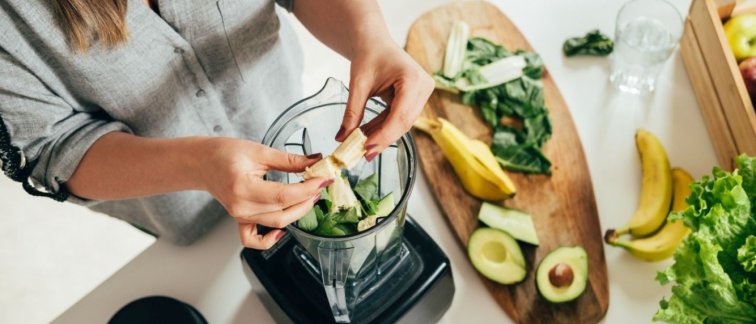"High kitchen salt consumption is associated with increased blood pressure and an increased risk of heart attacks and strokes," says nephrologist-internist Liffert Vogt of Amsterdam UMC. "Health advice is therefore aimed at limiting salt intake. But this is not feasible as long as food often contains processed products that have high salt levels. Our research shows that a diet rich in potassium reduces the adverse effects of excessive salt intake. This is because potassium increases the excretion of salt via the kidneys. These health benefits are greatest in women."
Less effect in men
The researchers analysed the relationship between potassium intake and blood pressure after correcting for age, gender and salt intake. In women an increase in potassium consumption (in grams per day) showed a decrease in blood pressure. The relationship between potassium and blood pressure was only observed in women who ate a lot of salt. Here every gram of daily potassium intake resulted in a 2.4 mmHg reduction in the systolic pressure. In men a smaller connection between potassium and blood pressure was demonstrated.
19 years of research
The study was carried out by PhD student Rosa Wouda, cardiologist Matthijs Boekholdt and nephrologist Liffert Vogt, all of whom work at Amsterdam UMC. The study involved 24,963 participants (11,267 men and 13,696 women). The average age was 59 years for men and 58 years for women. The participants completed a questionnaire on lifestyle habits, blood pressure was measured and a urine sample was collected. Sodium (table salt is sodium chloride) and potassium in the urine were measured to estimate daily intake. After a follow-up of about 19.5 years, 13,596 (55%) of the participants were found to have been hospitalised or to have died from cardiovascular disease. The researchers analysed the relationship between potassium intake and cardiovascular disease. Overall, people with the highest potassium content in the urine had a 13% lower risk of cardiovascular disease. When men and women were analysed separately, the risk reductions were 7% and 11% respectively.
Recommendations for improving health
Professor Vogt: "The results show that potassium helps to keep the heart and blood vessels healthy, but that women benefit more from this than men. Although to a lesser extent, a protective effect was also seen in men, but there was no relationship with blood pressure or with the consumption of kitchen salt. This suggests that potassium protects the heart differently in men. This deserves further research. For now, our findings indicate that a healthy heart diet goes beyond restricting table salt; increasing potassium levels also contributes to health. Food companies can help by changing sodium-based salt for potassium as standard in their products. More importantly, we should all prioritise fresh, unprocessed food, as it is low in salt but high in potassium."
Less table salt
In his inaugural lecture at the beginning of this year, the recently appointed Professor of Clinical Kidney Diseases and Renal Physiology Liffert Vogt mentioned that healthy food with less table salt should be made cheaper. This is particularly important now because, due to rising inflation, healthy food has become the most expensive in relative terms. Increasing the visibility of healthy snacks and healthy takeaways in public places, such as shopping streets and railway stations, is urgently needed. The food industry should also make an effort to realise the Good Food Guideline of 2015. In addition, he calls on scientists to greatly improve the quality of research into healthy nutrition, such as reducing the use of table salt. Too often, poorly conducted research on kitchen salt is used as an argument for not adjusting the amount of kitchen salt in food.
Read the scientific article in the European Heart Journal.

